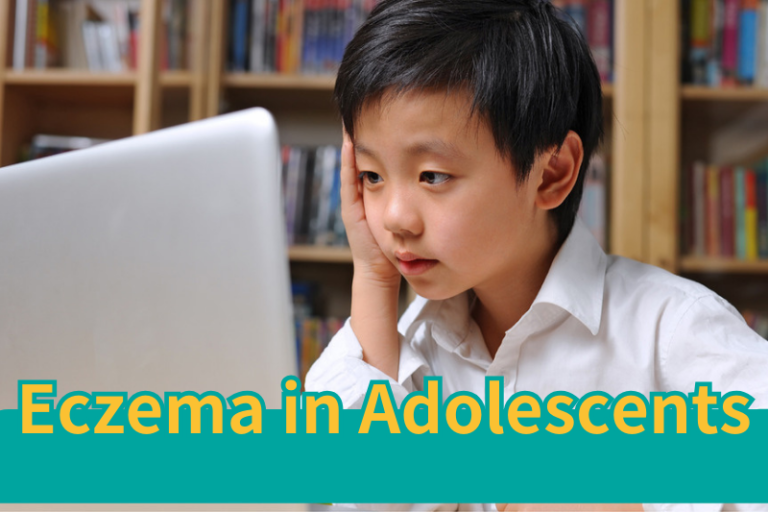MEDIA/
Eczema in Adolescents as School Starts

Eczema is closely related to stress. After the start of school, adolescents face significant learning pressures and insufficient rest. Additionally, as the weather transitions from summer to autumn, the humidity decreases and the air becomes dry, all of which can trigger eczema. Severe eczema can affect sleep and learning, making early treatment and addressing the issue essential.
Eczema has a considerable impact on adolescents, causing skin itchiness, peeling, and weeping, leading to discomfort that is hard to bear. This can hinder their concentration and affect their ability to attend classes due to lack of rest. Dermatologist Dr. Chan Sheung Hey Thomas notes, “Eczema in adolescents usually appears in skin folds, such as the elbows, neck, and knees. In severe cases, it may appear on the face, scalp, and limbs. Eczema not only affects appearance but also impacts adolescents’ emotions, leading to feelings of depression and anxiety as they worry about when their eczema will improve. During periods of high exam stress and poor mental health, eczema can worsen. However, adolescents tend to be independent and may not always follow medical advice. For instance, excessive sweating can exacerbate eczema, but they may not heed doctors’ recommendations to reduce intense physical activity. Furthermore, they often receive a lot of information online, but may not know how to filter it, sometimes believing in home remedies that worsen their eczema, such as the recently popular egg yolk oil remedy. As a result, their eczema frequently recurs and is difficult to control.”
Concerns About Steroids
When treating eczema, doctors prescribe various medications according to the condition, such as steroid ointments. However, some parents and adolescents are concerned about using steroid medications. Dr. Chan Sheung Hey Thomas explains, “Using steroids under the supervision of a dermatologist is actually quite safe, as specialists will prescribe different steroid ointments based on the location of the eczema on the body. For eczema on the palms and soles, stronger steroids are used, while milder steroids are applied around the eyes. Under professional dermatological care, the side effects of steroids can be detected and avoided early. In fact, even oral steroids for treating severe eczema patients can be safely used for short periods of a few weeks. However, steroids should not be used long-term, as using them for 1 to 2 years may lead to osteoporosis and affect growth.” Eczema patients should have a correct understanding of steroids and use them according to professional medical advice and follow-up visits.
Treatment Options for Severe Patients
In addition to oral steroids and immunosuppressants, biologics are another treatment option for severe eczema patients, suitable for those aged 12 and older with atopic dermatitis. Dr. Chan Sheung Hey Thomas explains, “Biologics are targeted treatments for eczema administered via subcutaneous injection. They do not have the widespread effects on the body’s immune system associated with steroids or immunosuppressants. The side effects are fewer, with common ones being keratitis, redness at the injection site, or mild cold symptoms and fatigue after the initial injection. They are suitable for patients with moderate to severe eczema, such as those with extensive rashes, severely affected sleep, or who have not seen significant results from steroid ointments.”
Tips for Itch Relief
To relieve eczema, Dr. Chan Sheung Hey Thomas reminds patients to apply moisturizer frequently and follow prescribed medications. During the pandemic, if students are learning at home, it is advisable to keep the room temperature between 22 to 25 degrees Celsius. With fewer bacteria at home, there is no need for excessive hand washing. It is suitable to use skin-friendly hand soap to avoid over-stimulation. When experiencing skin itchiness, it is recommended to apply an ice pack to the itchy area to help relieve it. Storing moisturizer in the refrigerator can enhance the soothing effect. Avoid scratching the itchy areas to prevent skin damage and bacterial infections; when extremely itchy, it is better to gently pat the area with the fingertip.


